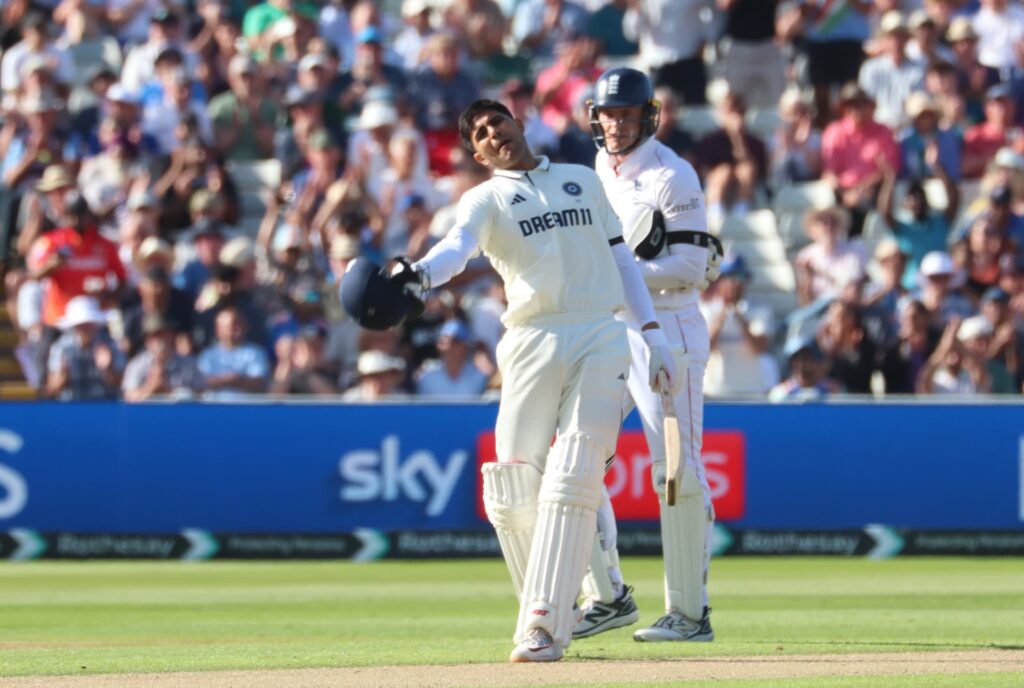
Boria Majumdar, Edgbaston
It was October 2002, and I was a PhD student at Oxford University, working on the history of Indian cricket, when I got a call from an auctioneer in London. He had helped me with material and sounded very excited on the phone. “Come and see what I have found,” he told me. When I met him the next day, I was in disbelief. I was actually holding in my hand a letter from Douglas Jardine, addressed to Duleepsinhji, which said that he had finally figured out a way to stop Don Bradman, and he wanted to discuss it with his premier batsman. On a meagre student stipend, the letter was beyond me. But we do know what Jardine meant. He had worked out his plan of unleashing Harold Larwood against Bradman, a plan that would bring Sir Don’s average to a modest 56 in the series later christened Bodyline.
If Jardine had Larwood, Ben Stokes has Chris Woakes, and Shubman Gill has Jasprit Bumrah. Men who run in rather languidly to throw the red cherry at gladiators standing on the other side of the 22-yard strip. Watching Gill battle it out against Woakes at Edgbaston was a fascinating display of skill and competitiveness. And that’s where Test cricket pips every other format. In ODI cricket, Brydon Carse is constrained by the bouncer rule. There is every chance of it being called a wide. In a close game, a top edge could prove to be decisive. Not so in Test cricket. Even if a top edge goes for six, it is the bowler who emerges the moral victor. He knows the batsman wasn’t in control, and he may well have the last laugh in the duel.
After Rishabh Pant’s dismissal to a poor shot, and Nitish Reddy falling to a bad error in judgement, India could easily have unravelled at Edgbaston. Shubman Gill’s assured century ensured that they stayed in the hunt.@BoriaMajumdar writes#ENGvIND https://t.co/6rux7fzX0U
— RevSportz Global (@RevSportzGlobal) July 2, 2025
Fast bowlers bowling at real pace has always been one of the most enduring sights of Test cricket. And to face them with extreme skill is what makes batsmen the stuff of legends. Sunil Gavaskar playing Malcolm Marshall with a skull cap and standing up to him in the Caribbean is his enduring legacy.
The very same could be said of Gill in this Test match. To score back-to-back hundreds in England against England as skipper isn’t easy. Can never be. Deep down, that’s what this sport is all about. In all the serenity of the white and the lush green surroundings and a very beautiful dressing room, it is a sport which is deeply physical. In that split second between delivering a ball and facing up to it, there is nothing gentlemanly. Rather, it is the most primitive and raw form of combat.
There is one winner and it is a no-holds-barred contest. With people waiting behind to catch the edge, the batsman is always under pressure. The slightest sign of discomfort will be pounced upon and taken note of. The bowler will push till the penny drops, for that’s what the sport tells him to do.
On a potentially decisive day two for Gill, Ravindra Jadeja and also Washington Sundar, the key is to overcome fear of failure. For the bowlers, the key is to instil fear or self-doubt. That’s Test cricket in a sentence. There can’t be a greater spectacle than the five-day game.
For all updates on the England vs India series, follow RevSportz



